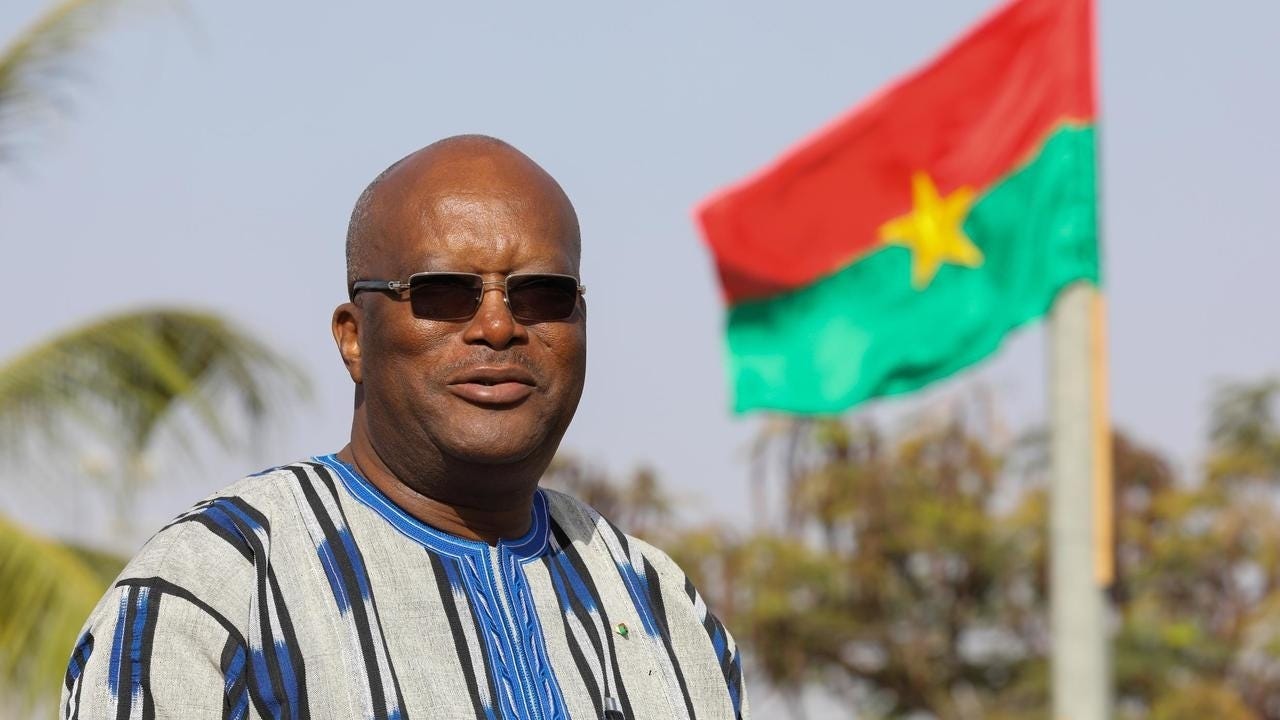🗺️ Picks of the Week — Nov. 27
1,000+ jobs, Geologists Use Volcanoes to Curb Emissions, Guatemala Sets Fire to Congress, Brazil BLM Violence, Burkina Faso Election, Tigrayans Accused of Ethiopian Massacre, India Bans Chinese Apps
Happy Friday folks! It’s been another long week, so let’s finish strong with the most important news from around the globe. This week we’ll visit New Zealand where geologists hope to harness heat from volcanoes to fight climate change; Guatemala where protestors have set fire to Congress; Brazil where protests have erupted over the murder of a black man outside a supermarket; Burkino Faso whose presidential election results have finally been released; Ethiopia where we have new developments in the deadly Tigray conflict; and India who has banned another slew of Chinese mobile apps amid heightening tension between the two countries.
Be sure to check out this week’s Inside The Middle East where we dissected the most important news from the most important region in the world.
And this week on the podcast we had Mr. Hurricane Man Josh Morgerman on to talk about the record setting 2020 Atlantic hurricane season, as well as how he recovers mentally after chasing a monster storm. Next week we'll have The Atlantic writer Olga Khazan on to talk about her new book Weird and why it's okay not to fit in.


Job Corner
We finally did it, 1,000 journalism jobs and internships! This week’s new postings feature the likes of CNN, the Economist and the Wall Street Journal. Keep spreading the word! 🙏 👇
Violent Protests Erupt in Brazil
We start this week in Brazil where protests erupted on the eve of the country’s Black Consciousness Day, after a black man was murdered by security guards outside a Carrefour supermarket in Porto Alegre. João Alberto Silveira Freitas was held and beaten by guards while a store employee stood to the side and videoed the incident. Demonstrations have taken place inside and outside Carrefours across Brazil, and the two security guards are being investigated for homicide. When asked about the murder, Vice President Hamilton Mourão denied racism existed in Brazil.
Black and mixed race people make up about 57 percent of Brazil’s population, though they constitute 74 percent of victims of lethal violence, and 79 percent of police killings. Since the unsolved 2018 murder of Marielle Franco, a black gay social activist and politician in Rio de Janeiro, racist violence has dominated Brazil’s protests. Amid the unrest, the country’s recent municipal elections saw more black candidates than white for the first time.
Violence erupts in Brazil after a black man is beaten to death outside supermarket
More Violent Protests, This Time in Guatemala
We visit Central America next where protesters set fire to Guatemala’s National Assembly in protest of cuts to health and education spending. Thousands also took to the streets in Guatemala City to take part in peaceful marches, and all involved are angry that the cuts were negotiated and passed in secret while the country recovered from the destruction caused by the category 4 Hurricane Eta and category 5 Hurricane Iota. The country is also struggling to contain Covid-19, and has seen more than 4,000 deaths.
In response to the protests, conservative President Alejandro Giammattei defended the public’s right to protest, but condemned damage to public property. Vice President Guillermo Castillo offered to resign, and urged the president to do so too. The country has sought support from the Organization of American States to encourage peaceful dialogue with the opposition.
Guatemala protestors set congress on fire
Support Independent Journalism
Hey there, if you’ve enjoyed today’s newsletter and previous content, please consider supporting us so we can continue delivering you the most important news from around the world 🙏
Burkina Faso Re-Elects President
Moving to West Africa next where Burkina Faso voted to re-elect President Roch Marc Christian Kaboré of the center-left People’s Movement for Progress party. Kaboré won 58 percent of the vote, according to preliminary results, and will serve his second term after succeeding former President Blaise Compaore in 2015, who was forced to step down after 27 years and now lives in exile in Côte d'Ivoire.
Voting took place amid threats of violence linked to Islamic State and al-Qaeda, and the security risk prevented people from voting in almost 20 percent of the country’s 8,000 villages. The opposition Congress for Democracy and Progress party accused the governing party of electoral fraud, which led to a pause in vote counting, and they now have seven days to appeal the results.
Kaboré’s first tenure was overshadowed by conflict between the country’s army and Islamist militants, which saw more than 2,000 deaths and displaced more than one million people. The intimidation from extremist groups raises serious questions about the country’s stability.
Tigrayans Accused of Civilian Massacre
Staying in Africa next where Ethiopia’s Human Rights Commission accused a Tigrayan youth group known as ‘Samri’ of killing at least 600 civilians earlier this month. The massacre allegedly took place in the village of Mai Kadra, and mainly targeted residents of Amharas and Wolkait origin.
Meanwhile Ethiopia’s Nobel Peace Prize-winning President Abiy Ahmed urged citizens to stay at home as the military prepares to launch the “final phase” of its offensive on the Tigrayan capital of Mekelle, which has so far killed hundreds of people. Both sides’ claims are unverified due to the continued communications blackout in Tigray, though we do know that at least 40,000 Ethiopian refugees have fled to Sudan.

Previous Picks of the Week 👀
🔎 Picks of the Week — November 20
🔎 Picks of the Week — November 13
🔎 Picks of the Week — November 6
🔎 Picks of the Week — October 30
India Bans Another 43 Mobile Apps
Up next is India whose government issued a ban on 43 mobile apps, which the country said are prejudicial to the sovereignty and integrity of the country. The latest development comes after previous bans in June and September, taking the total number of prohibited apps, many of which are Chinese, to 220. TikTok, which is due to be blocked in the U.S., is among the barred apps in India.
The restrictions come after India and China agreed to ease tensions in September over the disputed Himalayan region. Twenty Indian troops were killed by Chinese forces in June, while China is yet to release its casualty figures. Some internet policy analysts expressed concern over the lack of transparency behind the bans, particularly using national security to justify them.

New Zealand Geologists To Use Volcano Heat to Fight Climate Change
We finish this week in New Zealand where geologists are planning to drill into an extinct volcano to explore whether its geothermal heat can be used as renewable energy. Scientists from the University of Otago are set to drill two 500-meter wells to go beneath the sedentary rock, and will monitor the heat from the volcano’s magma chamber to see whether the energy is sufficient to be used as a heat resource.
After her landslide election victory last month, Prime Minister Jacinda Ardern said the country wouldn’t follow when it came to climate change, and previously pledged to meet zero-emissions by 2050. Arden’s government’s efforts have been ranked as ‘insufficient’, according to Climate Action Tracker. Having requested funding from the government’s Smart Ideas program, the geologists are aiming to tap into New Zealand’s geothermal potential, as it sits in the Pacific Ring of Fire, home to 75 percent of the world’s volcanoes.
Why there’s a ring of natural disasters around the Pacific
That’s it for today! See you next week for more podcast and global news! 👋






